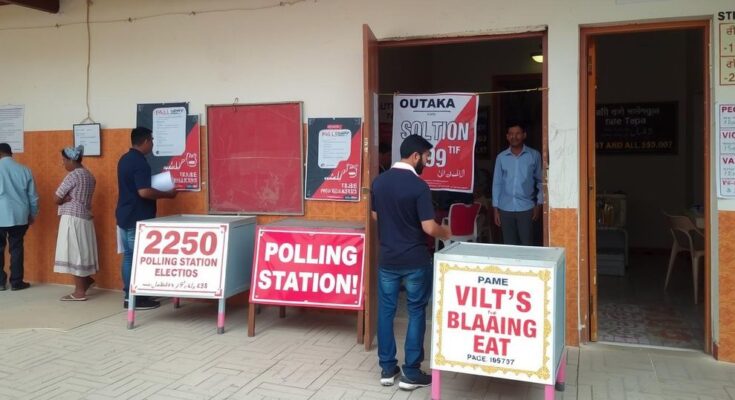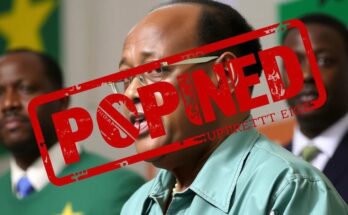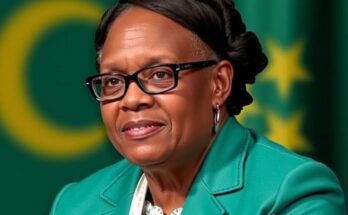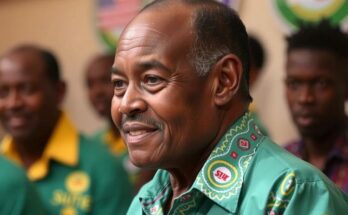Voting in Chad has begun with opposition parties urging a boycott, labeling the elections a sham intended to reinforce the ruling party’s control. Many citizens express disbelief in any change, citing pressing issues like corruption and high living costs. Approximately 45% of the military and nomadic voters participated, but the elections are heavily criticized for lacking integrity and for being dominated by pro-government forces.
Voting has commenced in Chad amidst calls from opposition parties for a boycott, deeming the elections a mere facade to bolster the ruling party’s authority. President Mahamat Idriss Deby Itno characterized the elections as pivotal toward a democratic transition; however, the opposition contests this narrative. Many citizens feel apathetic toward the process, expressing skepticism about any potential change, and instead focus on pressing issues like the high cost of living and rampant corruption. Despite the boycott advocacy, a significant proportion of soldiers and nomadic tribespeople participated in Saturday’s voting. The elections occur against a backdrop of rising rebel violence and recent geopolitical shifts involving France, further complicating the political landscape. Analysts caution that while these elections mark the end of a transitional period, there are serious concerns regarding the electoral integrity and dominance of the governing party.
In Chad, the political atmosphere is tense as the country conducts general elections, following a period of military transition initiated after the storied rule of late President Idriss Deby Itno. His son, Mahamat Idriss Deby, now leads amid widespread unrest and challenges from armed groups, including Boko Haram. Opposition parties contest the fairness of the elections, urging citizen abstention while highlighting their misgivings about government corruption and economic hardship. This political climate reflects a broader struggle for democracy in regions still grappling with post-colonial legacies and internal strife.
In conclusion, the elections in Chad are marked by controversy and skepticism, with opposition parties calling for boycotts and citizens expressing indifference. Despite the government’s claim that these elections represent a movement towards democracy, concerns regarding fairness and the influence of the ruling Patriotic Salvation Movement persist. The complex political situation is further exacerbated by internal violence and shifting international relations, particularly with France.
Original Source: www.aljazeera.com




